Browse the Collection
Browsing 21 items in our archive
Filters: Questionnaires, Sports photography, College Administrators, Grover, Edwin Osgood, 1870-1965 Clear filters
-
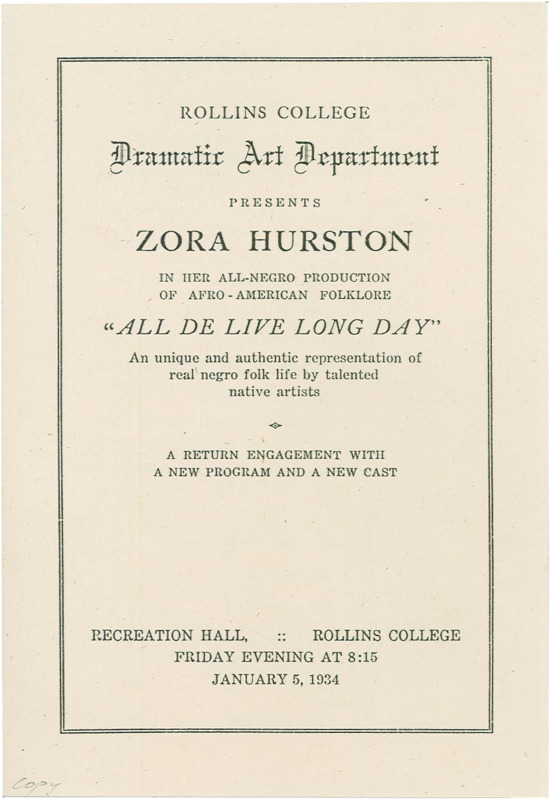 Rollins College | Text
Rollins College | TextAll De Live Long Day Program, 1934
All De Live Long Day, a program of African American folklore, music, and dance, was the second of two productions by Zora Neale Hurston to be performed on the Rollins campus during the 1930s.Learn more -
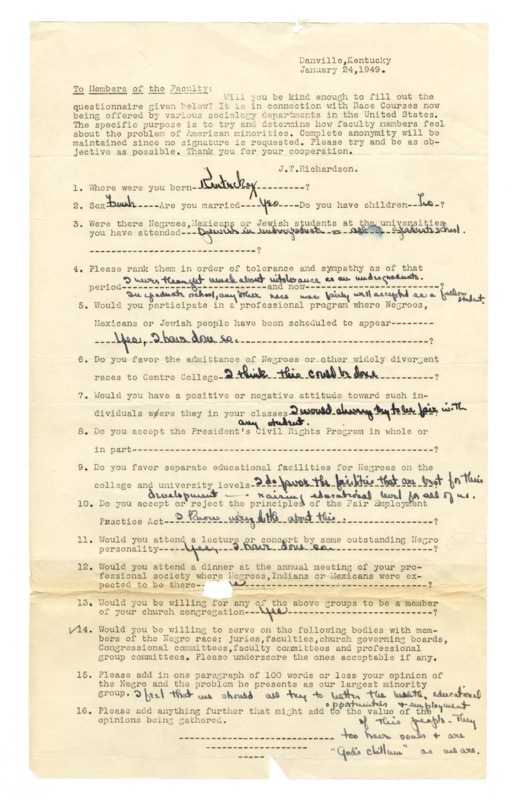 Centre College | Text
Centre College | TextAmerican minorities faculty questionnaire (1)
Anonymous responses to a questionnaire distributed to Centre College faculty January 24, 1949, the stated purpose of which was "to try an determine how faculty members feel about the problem of American minorities."Learn more -
 Centre College | Text
Centre College | TextAmerican minorities faculty questionnaire (10)
Anonymous responses to a questionnaire distributed to Centre College faculty January 24, 1949, the stated purpose of which was "to try an determine how faculty members feel about the problem of American minorities."Learn more -
 Centre College | Text
Centre College | TextAmerican minorities faculty questionnaire (11)
Anonymous responses to a questionnaire distributed to Centre College faculty January 24, 1949, the stated purpose of which was "to try an determine how faculty members feel about the problem of American minorities."Learn more -
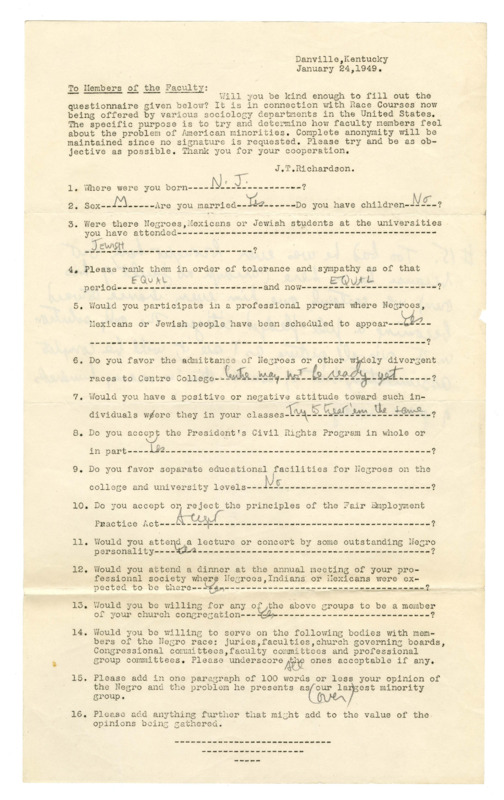 Centre College | Text
Centre College | TextAmerican minorities faculty questionnaire (12)
Anonymous responses to a questionnaire distributed to Centre College faculty January 24, 1949, the stated purpose of which was "to try an determine how faculty members feel about the problem of American minorities."Learn more -
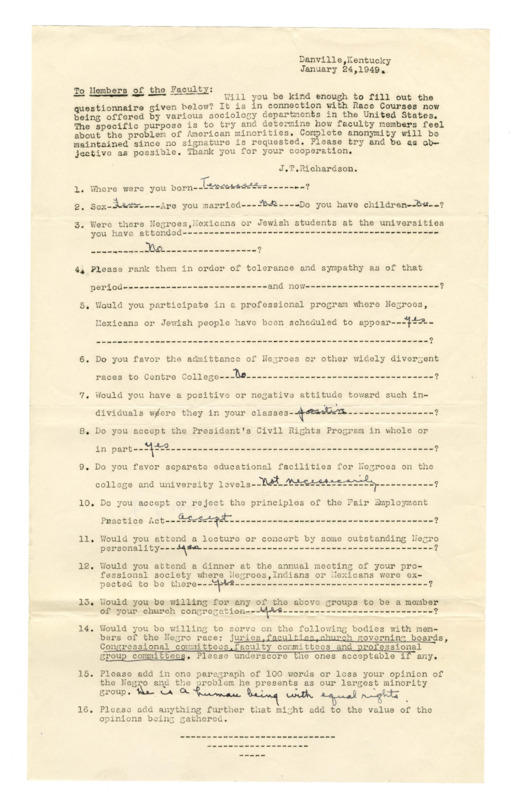 Centre College | Text
Centre College | TextAmerican minorities faculty questionnaire (2)
Anonymous responses to a questionnaire distributed to Centre College faculty January 24, 1949, the stated purpose of which was "to try an determine how faculty members feel about the problem of American minorities."Learn more -
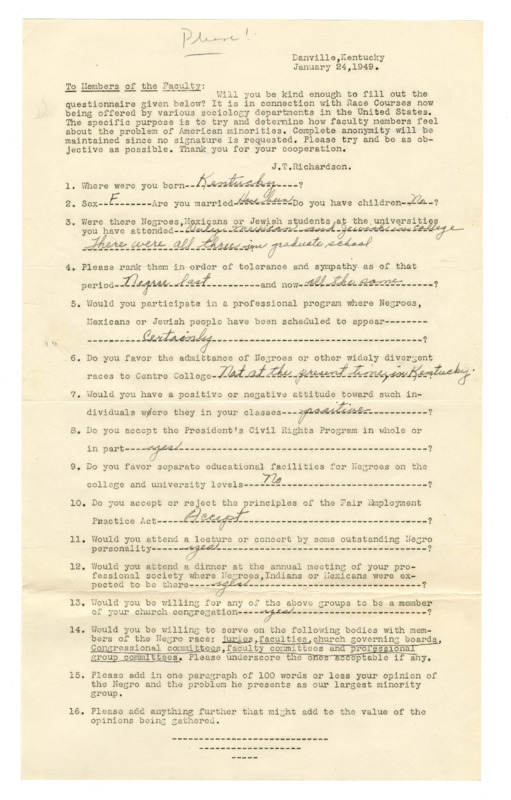 Centre College | Text
Centre College | TextAmerican minorities faculty questionnaire (3)
Anonymous responses to a questionnaire distributed to Centre College faculty January 24, 1949, the stated purpose of which was "to try an determine how faculty members feel about the problem of American minorities."Learn more -
 Centre College | Text
Centre College | TextAmerican minorities faculty questionnaire (4)
Anonymous responses to a questionnaire distributed to Centre College faculty January 24, 1949, the stated purpose of which was "to try an determine how faculty members feel about the problem of American minorities."Learn more -
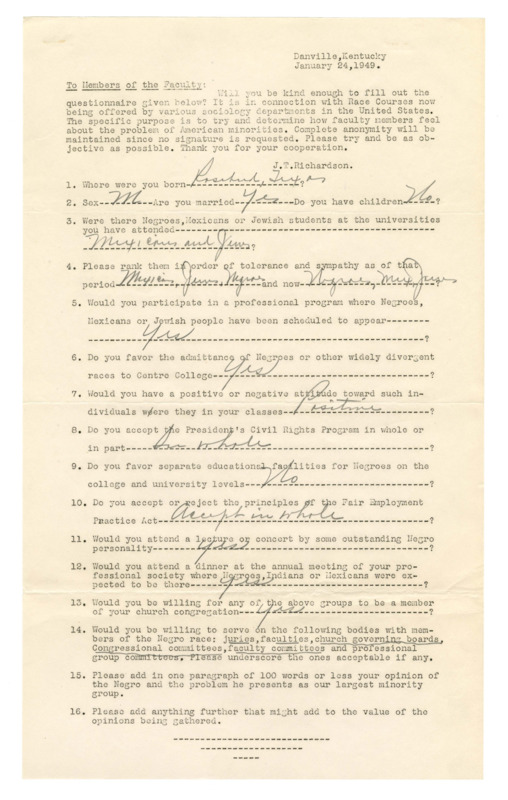 Centre College | Text
Centre College | TextAmerican minorities faculty questionnaire (5)
Anonymous responses to a questionnaire distributed to Centre College faculty January 24, 1949, the stated purpose of which was "to try an determine how faculty members feel about the problem of American minorities."Learn more -
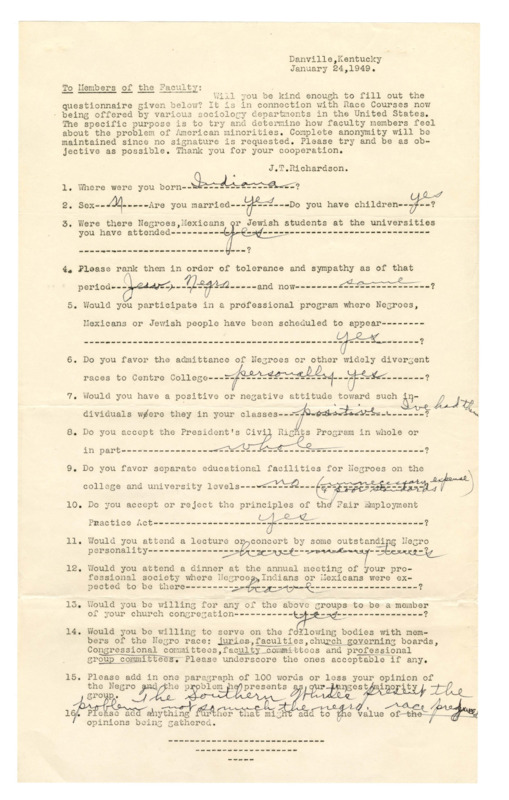 Centre College | Text
Centre College | TextAmerican minorities faculty questionnaire (6)
Anonymous responses to a questionnaire distributed to Centre College faculty January 24, 1949, the stated purpose of which was "to try an determine how faculty members feel about the problem of American minorities."Learn more -
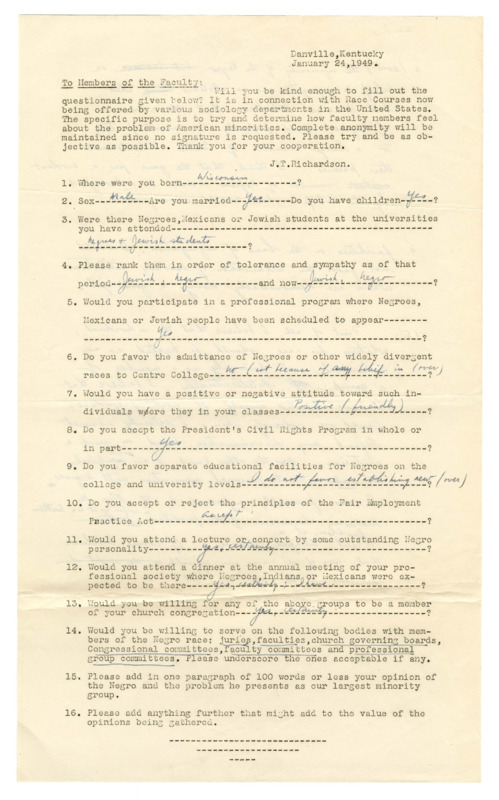 Centre College | Text
Centre College | TextAmerican minorities faculty questionnaire (7)
Anonymous responses to a questionnaire distributed to Centre College faculty January 24, 1949, the stated purpose of which was "to try an determine how faculty members feel about the problem of American minorities."Learn more -
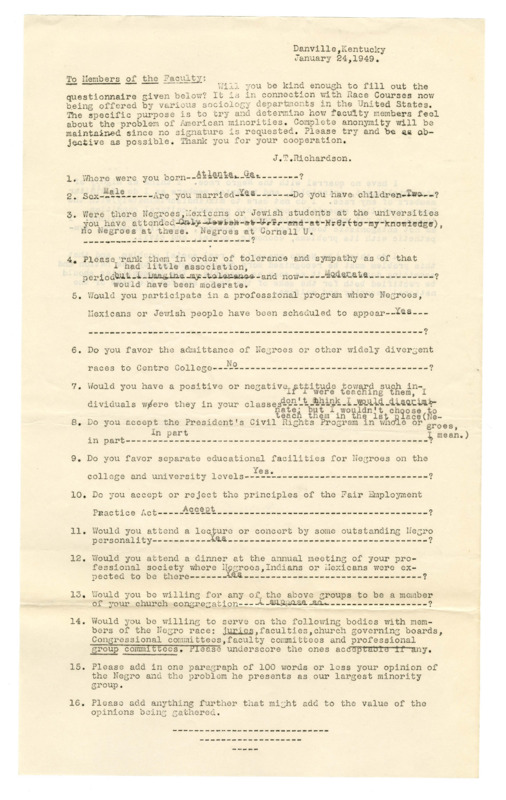 Centre College | Text
Centre College | TextAmerican minorities faculty questionnaire (8)
Anonymous responses to a questionnaire distributed to Centre College faculty January 24, 1949, the stated purpose of which was "to try an determine how faculty members feel about the problem of American minorities."Learn more -
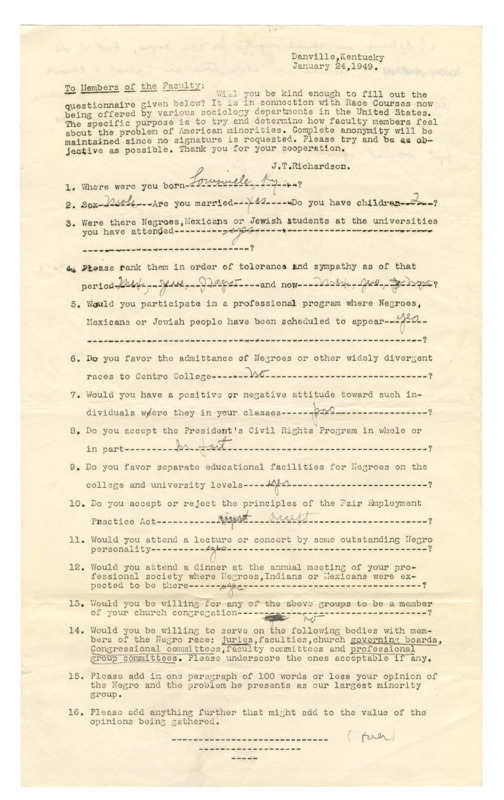 Centre College | Text
Centre College | TextAmerican minorities faculty questionnaire (9)
Anonymous responses to a questionnaire distributed to Centre College faculty January 24, 1949, the stated purpose of which was "to try an determine how faculty members feel about the problem of American minorities."Learn more -
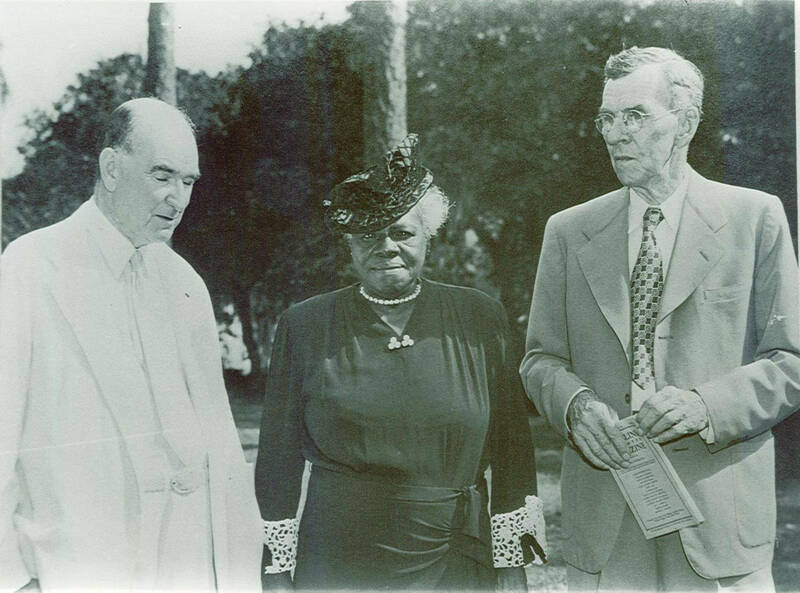 Rollins College | Image
Rollins College | ImageHamilton Holt, Mary McLeod Bethune, and Edwin Osgood Grover
President Hamilton Holt; Mary McLeod Bethune, President Emerita of Bethune-Cookman College; and Professor of Books Edwin Osgood Grover at the 1949 Animated Magazine.Learn more -
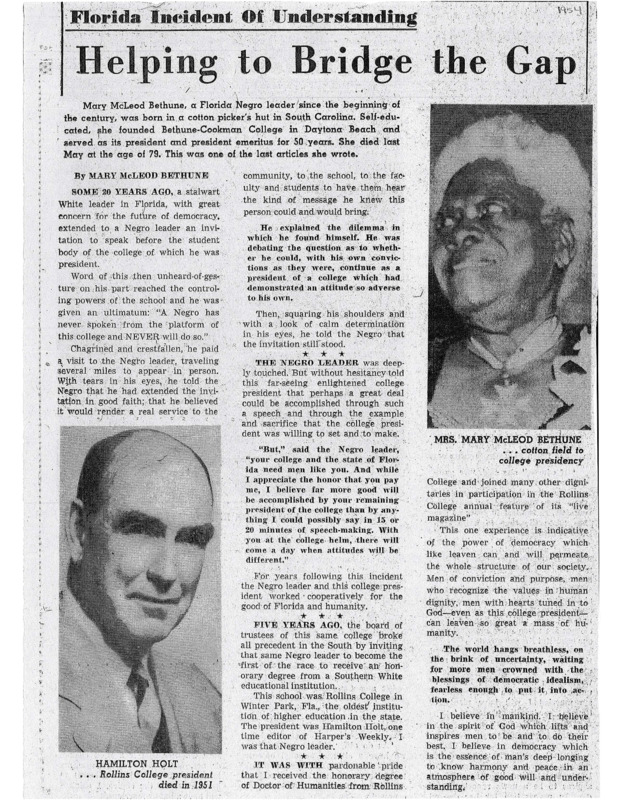 Rollins College | Text
Rollins College | TextHelping to Bridge the Gap
This article, written by Mary McLeod Bethune, discusses her friendship with President Hamilton Holt. It outlines the path of acceptance of African Americans at Rollins College, and her hope for further acceptance and integration in the future. Circa 1955-1956Learn more -
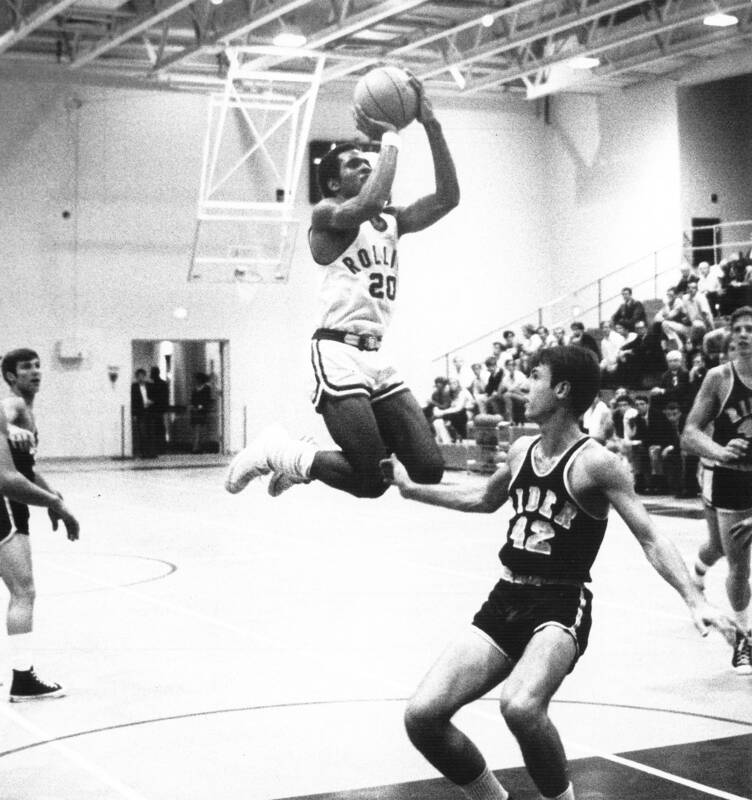 Rollins College | Image
Rollins College | ImageLawrence Martinez, Basketball Player, Action Shot
Lawrence Martinez takes a jump shot over his defender. This was Martinez’s sophomore year at Rollins and his second year on the basketball team.Learn more -
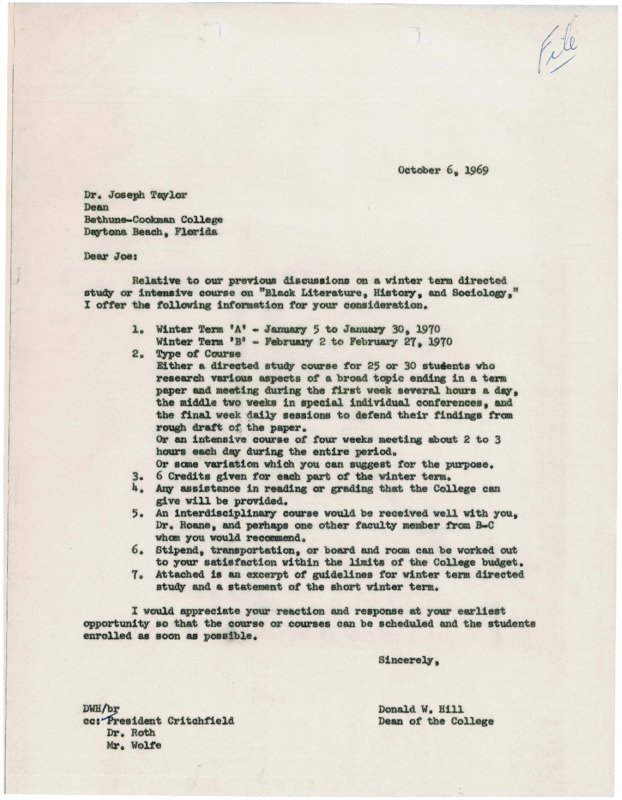 Rollins College | Text
Rollins College | TextLetter from Donald W. Hill to Joseph Taylor, 1969
The administration responds to student demands for more Black studies by creating a winter term course on "Black Literature, History and Sociology." The Dean of Rollins College consulted the Dean of Bethune-Cookman College on the structure and content of the course, demonstrating continued cooperation between the two institutions.Learn more -
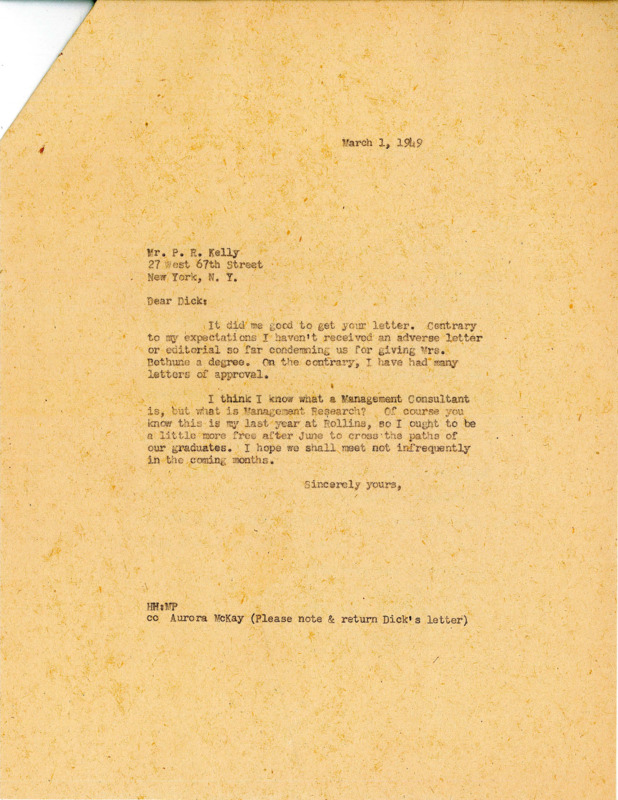 Rollins College | Text
Rollins College | TextLetter from Hamilton Holt to Philip R. Kelly, 1949
President Hamilton Holt writes to alumnus Dick Kelly about public support for awarding an honorary degree to civil rights leader and educator Mary McLeod Bethune.Learn more -
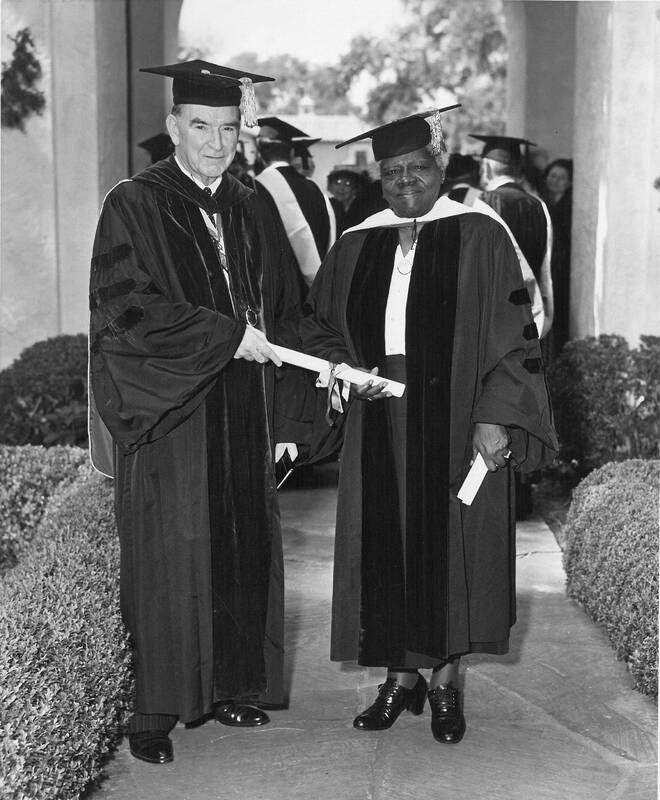 Rollins College | Image
Rollins College | ImageMary McLeod Bethune Receives an Honorary Degree from Rollins, 1949
Hamilton Holt awarding Mary McLeod Bethune, President Emerita of Bethune-Cookman College, with an honorary degree of Doctor of Humanities.This is the first honorary degree given to an African American by an institution of higher education in the South.Learn more -
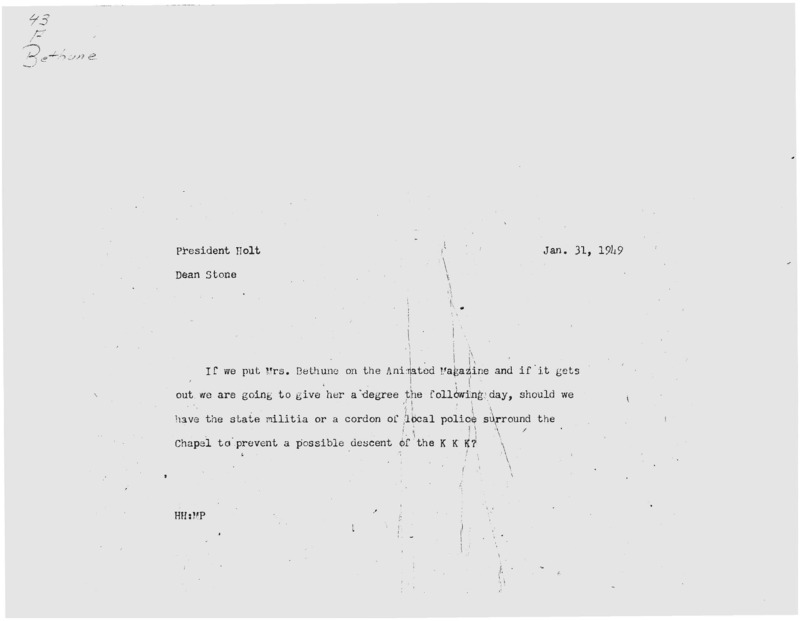 Rollins College | Text
Rollins College | TextMemorandum from Hamilton Holt to Dean Wendell Stone, 1949
Hamilton Holt expresses concern that the announcement of Mary McLeod Bethune's honorary degree would cause protesting and interference from the KKK. His fears proved to be unfounded, but facing violence was a real possibility.Learn more -
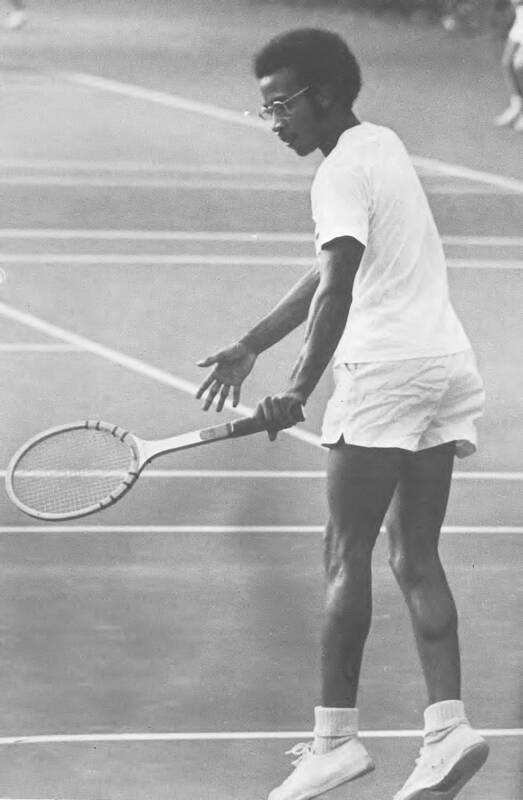 Rollins College | Image
Rollins College | ImageReginald "Reggie" Brock Playing Tennis
In 1970, Reginald "Reggie" Brock was the first African American tennis player at Rollins College. He earned two varsity letters and multiple awards during his time with the team.Learn more
